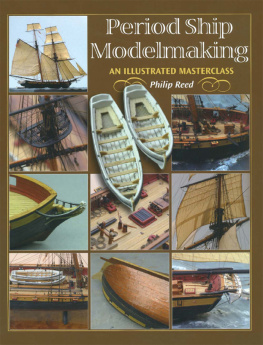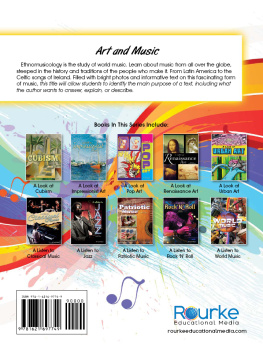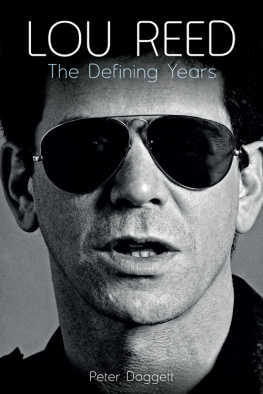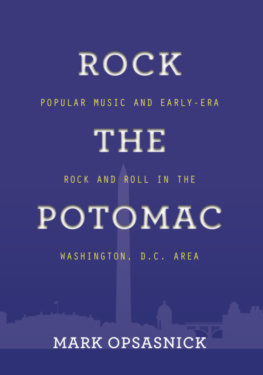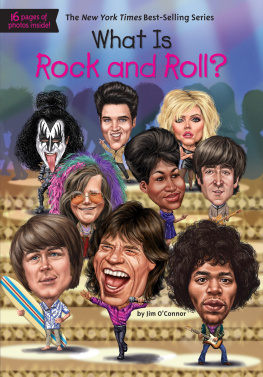Reed - Assimilate: a critical history of industrial music
Here you can read online Reed - Assimilate: a critical history of industrial music full text of the book (entire story) in english for free. Download pdf and epub, get meaning, cover and reviews about this ebook. City: New York;NY, year: 2013, publisher: Oxford University Press, Incorporated, genre: Romance novel. Description of the work, (preface) as well as reviews are available. Best literature library LitArk.com created for fans of good reading and offers a wide selection of genres:
Romance novel
Science fiction
Adventure
Detective
Science
History
Home and family
Prose
Art
Politics
Computer
Non-fiction
Religion
Business
Children
Humor
Choose a favorite category and find really read worthwhile books. Enjoy immersion in the world of imagination, feel the emotions of the characters or learn something new for yourself, make an fascinating discovery.

- Book:Assimilate: a critical history of industrial music
- Author:
- Publisher:Oxford University Press, Incorporated
- Genre:
- Year:2013
- City:New York;NY
- Rating:3 / 5
- Favourites:Add to favourites
- Your mark:
- 60
- 1
- 2
- 3
- 4
- 5
Assimilate: a critical history of industrial music: summary, description and annotation
We offer to read an annotation, description, summary or preface (depends on what the author of the book "Assimilate: a critical history of industrial music" wrote himself). If you haven't found the necessary information about the book — write in the comments, we will try to find it.
Assimilate: a critical history of industrial music — read online for free the complete book (whole text) full work
Below is the text of the book, divided by pages. System saving the place of the last page read, allows you to conveniently read the book "Assimilate: a critical history of industrial music" online for free, without having to search again every time where you left off. Put a bookmark, and you can go to the page where you finished reading at any time.
Font size:
Interval:
Bookmark:
ASSIMILATE
A Critical History of Industrial Music
S. ALEXANDER REED


Oxford University Press is a department of the University of Oxford. It furthers the Universitys objective of excellence in research, scholarship, and education by publishing worldwide.
Oxford New York
Auckland Cape Town Dar es Salaam Hong Kong Karachi
Kuala Lumpur Madrid Melbourne Mexico City Nairobi
New Delhi Shanghai Taipei Toronto
With offices in
Argentina Austria Brazil Chile Czech Republic France Greece
Guatemala Hungary Italy Japan Poland Portugal Singapore
South Korea Switzerland Thailand Turkey Ukraine Vietnam
Oxford is a registered trade mark of Oxford University Press in the UK and certain other countries.
Published in the United States of America by
Oxford University Press
198 Madison Avenue, New York, NY 10016
S. Alexander Reed 2013
All rights reserved. No part of this publication may be reproduced, stored in a retrieval system, or transmitted, in any form or by any means, without the prior permission in writing of Oxford University Press, or as expressly permitted by law, by license, or under terms agreed with the appropriate reproduction rights organization. Inquiries concerning reproduction outside the scope of the above should be sent to the Rights Department, Oxford University Press, at the address above.
You must not circulate this work in any other form and you must impose this same condition on any acquirer.
Library of Congress Cataloging-in-Publication Data
Reed, S. Alexander.
Assimilate : a critical history of industrial music / S. Alexander Reed.
pages cm
ISBN 978-0-19-983258-3 (hardcover : alk. paper) ISBN 978-0-19-983260-6 (pbk. : alk. paper)
1. Industrial musicHistory and criticism. I. Title.
ML3528.7.R44 2013
781.64809dc23 2012042281
1 3 5 7 9 8 6 4 2
Printed in the United States of America on acid-free paper
Publication for this book was supported by the AMS 75 PAYS Endowment of the American Musicological Society, funded in part by the National Endowment for the Humanities and the Andrew W. Mellon Foundation.
PART I
TECHNOLOGY AND THE PRECONDITIONS OF INDUSTRIAL MUSIC
PART II
INDUSTRIAL GEOGRAPHY
PART III
INDUSTRIAL MUSICAL STYLE
PART IV
INDUSTRIAL POLITICS
PART V
PEOPLE AND INDUSTRIAL MUSIC
Invaluable commentary, questions, and suggestions throughout this project came from several anonymous readers and also from my fellow scholars Ian Reyes, Marsha Bryant, Daphne Carr, Robert Fink, Mary Lewis, Andrew Weintraub, Rebekah Ahrendt, Philip Tagg, Zarah Ersoff, and Galen Brown. Helpful discussions and opinions were offered by attendees at conferences where earlier versions of this books chapters were presented. Amy Gorelick, Lee Hendricks, and Phil Sandifer also inspired, advised, and cooked good food. Vital early manuscript guidance came courtesy of Jane Behnken. Thomas Finnegan provided detailed and witty copy editing. Suzanne Ryan is to thank for believing in this book enough to bring it to Oxford University Press.
Thanks to all of those who granted interviews or whose incidental conversations made their way into this book; whether youre quoted directly or not in these pages, you helped to shape them. Im also grateful to those who helped me with archival research and with helping me find some obscure sources: James Ned Kirby, Kelly Litzenberger, and Walt Miller deserve mention here by name. Thanks also to my army of volunteer transcribers: Daniel Siepmann, Amber Braun, Leslie McCluskey-Eissing, John Aho, Stefanie Acevedo, James Young, Donovan Howe, Andria Poiarkoff, Amanda Swenson, Morgan Rich, Sarah Bushey, Adam Scott Neal, Lindsey OBrien, and Holly Ray.
My colleagues at the University of Florida and New York University have been immensely supportive throughout the writing of this book. Especially vital has been the trusting encouragement of John Duff, Paul Richards, Paul Koonce, James Paul Sain, Leslie Odom, Jennifer Thomas, Silvio Dos Santos, Margaret Butler, Mutlu itim-Kepic, and Amanda Mayberry. The University of Florida Fine Arts Scholarship Enhancement Fund assistance in my 2011 research travel. Penelope Collins, Aiva Veinberga, Sarah Manvel, and Koen, Annette, and Jaap Brand were wonderfully hospitable during these expeditions. Further funding for this book was provided by the AMS 75 PAYS Endowment of the American Musicological Society.
Thanks to the countless people around the world who have made, written about, and contextualized this music. Those who personally helped me know, enjoy, and think critically about it are too many to name, but they include my sisters, Robyn and Karen, Kurt Thorn, Doug Morse, Chris Boone, Ian Struckhoff, Rosemary Ledesma, Jacob Racusin, Brian Ales, Rik Millhouse, Aaron Fuleki, and Jeremy Long. I am particularly grateful to my parents for tolerating my lifelong immersion in this music. Finally, I owe special thanks to my wife, Meredith Collins, whose love, patience, proofreading, academic camaraderie, encouragement, and smart conversation make writing, thinking, and music better every day.
A brief word of warning. I have to confess to a level of discomfort when the term industrial is put to me. As a musician and producer who, it would seem, had more than a passing flirtation with what the media and music consumers broadly label industrial music, or industrial beats, I tend to bristle a little. As a founding member of Cabaret Voltaire, a group who hail from a northern British industrial city, it seems I can offer little defense, though. We made music that was often sonically brutal, we challenged ideas of authority and control, we toyed with moody and often taboo imagery, we were simultaneously intellectual and anti-intellectual, we thought ourselves iconoclastic, and we wore raincoats sometimes; in our defense it was the north and it did rain occasionally.
Perhaps the initial reaction is justifiable, as industrial was never a term we applied to ourselves. Wary of being burdened with a media definition, we felt a natural fear of having a spectrum of work reduced to a single classification. There was also an issue of courtesy. Throbbing Gristle, with a commensurate serving of gravitas and mischievousness, tagged their record label Industrial Music for Industrial People. As friends and peers, we were honored to have releases on the label, but understandably we avoided any identity conflict out of respect.
In truth it has to be said that the muted response to being called industrial is much more complex. Fearful of becoming a self-fulfilling prophecy, we did not find the idea that we would become a short-lived sonic reification of our citys monocultural identity appealing. Similarly, we felt under no obligation to answer for a whole subsequent genre as the media began to box it up. Like all artists, we felt responsible for ourselves alone, and as the industrial banner unfurled to incorporate disparate protagonists, some too singular in ideology for our tastes, a diplomatic distance was put in place. But perhaps for many who are invested in the meaning of the I-word, particularly in the context of the dominant rock modality, this arms-length riposte has put industrial outside the general music discourse or academic reflection for too long. Many of the implications, connections, and consequences of the music made in its name have been overlooked, denied proper scrutiny.
Next pageFont size:
Interval:
Bookmark:
Similar books «Assimilate: a critical history of industrial music»
Look at similar books to Assimilate: a critical history of industrial music. We have selected literature similar in name and meaning in the hope of providing readers with more options to find new, interesting, not yet read works.
Discussion, reviews of the book Assimilate: a critical history of industrial music and just readers' own opinions. Leave your comments, write what you think about the work, its meaning or the main characters. Specify what exactly you liked and what you didn't like, and why you think so.





